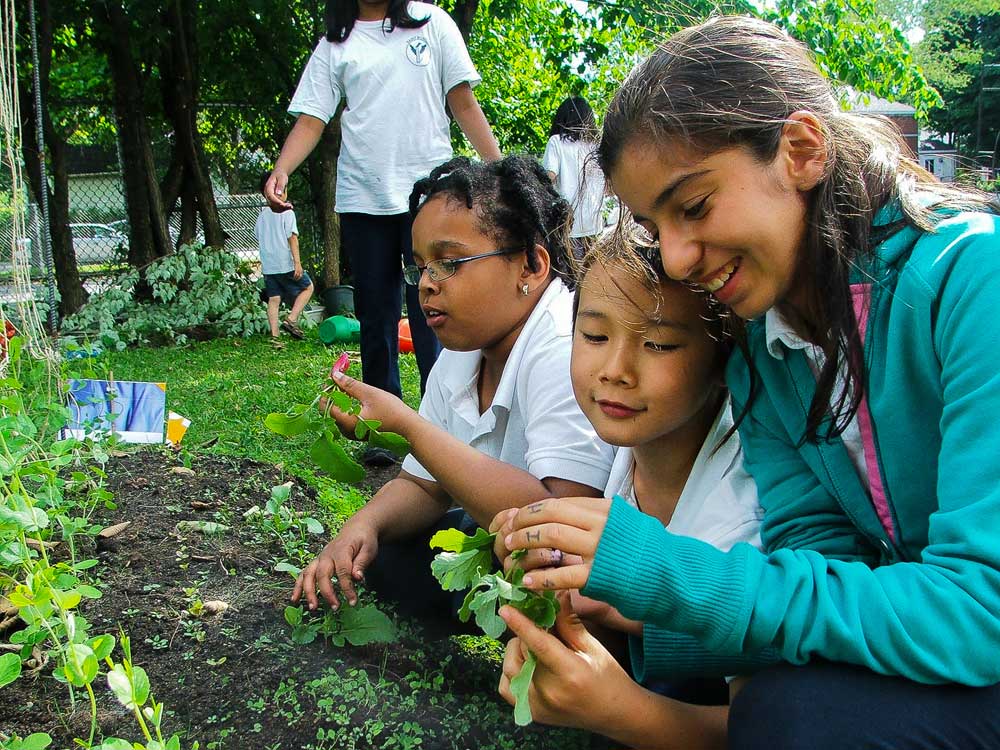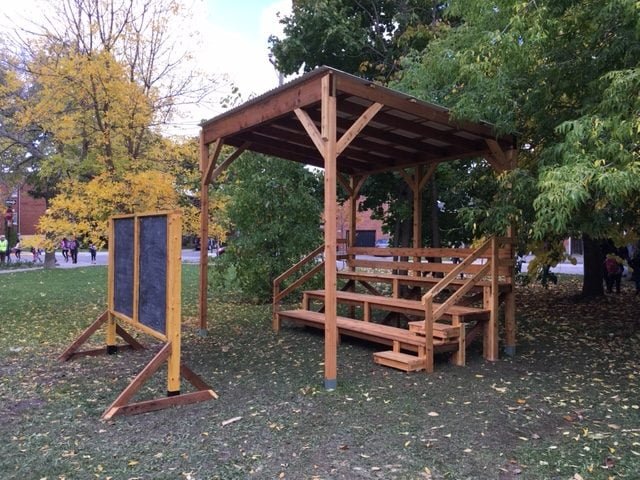by Katie Nicol | SchoolAdvice Education Consultant | [email protected]
“If you have a garden and a library, you have everything you need.”
..Marcus Tullius Cicero
When we talk about education, the focus seems to always be on the core academic subjects of the prescribed curriculum. However, in order to be successful learners, all students need to be eating well. Nutrition plays a key role in the healthy development of children and nutritious foods provide the body and mind with the energy needed to grow, feel well, be active, stay healthy and to learn. There are two important aspects here to think about. The first is being able to provide nutritious foods to all youth so their brains are prepared to grow and develop. The second is to provide them with the educational tools to be able to learn and experience the importance of food and nutrition. In order to ensure that all students are receiving adequate nutrition, food security programs are needed. Food security programs provide people in need with access to enough food for a healthy life.
The Depot Community Food Centre, is a community-based non-profit organization founded in 1986 that works collaboratively with other community partners to address issues of food security in several western sectors of Montreal. They offer a variety of community programs that work to improve access to healthy and affordable food, reduce social isolation, and foster personal growth and community engagement among its participants.
In 2014, the Depot established Ça pousse!, a social economy initiative which uses urban agriculture to facilitate learning, skill building and social exchange. Ça pousse! works with schools, seniors’ residences, and community groups to design and build custom gardens and create educational and therapeutic programming. All proceeds generated by Ça pousse! are reinvested in the food security programs of the Depot.

The Five Objectives of Ça pousse.
Number One
Number One
Gardens are used as a tool to engage students in pedagogy, as well as for therapeutic and recreational purposes in institutions.
Number Two
Number Two
Clients are equipped with appropriate resources and knowledge to sustain and grow their projects.
Number Three
Number Three
Participants can identify and know how to grow and use the vegetables they consume.
Number Four
Number Four
Clients and participants are sensitized to environmental issues and the relevance of urban agriculture in healthy local food systems.
Number Five
Number Five
Communities have natural and productive spaces in which to gather and exchange.
Why have a School Garden?
Ça pousse Helping Schools
School gardens may seem like a daunting task to any school administrator or teacher but there are numerous benefits for having a school garden both for students and the surrounding community. Ça pousse! helps schools to either build and/or maintain their gardens. This program helps teachers and classrooms to develop and build their garden, whether it be an indoor garden or outdoor. Ça pousse! will help with the planning and designing to figure out which options are best for your specific school. They offer schools 30 different workshops to effectively implement these types of garden projects,, ranging from workshops geared toward the Biology and Science aspects of maintaining a garden, to a more arts and language based programming.
Benefits of Having a Garden in Your School
Gardens can do much more for student learning than simply what is being grown on the plants. There are many ways to connect the garden to curriculum which helps make learning more concrete and more accessible to all types of learners.
Studies that show that learning outdoors has a positive impact on mental health. It reduces anxiety and stress, and increases concentration and curiosity. Of course, like all of us, students are excited to get outside the classroom. But once they get used to it, they become less distracted and begin to be more focused and calm in the natural light of the outdoors rather than the institutional lighting found inside our schools.
The act of building and maintaining a garden allows students the opportunity to engage in physical movement that is not competitive but rather collaborative. It requires a lot of cooperation to work together to build and maintain a garden. This also builds students’ self-confidence as they are doing something productive and building skills and qualities in a positive way.
Teacher Training
There are many ways gardens can be connected to curriculum through science and biology, math, language arts, painting and drawing, history, etc. It offers the opportunity for teachers to get creative as well!
Ça pousse! now offers teacher trainings to help teachers feel more comfortable and confident in involving gardens into their classroom learning programs. During these trainings, teachers will learn about project management, how to effectively incorporate gardens into the learning program, as well as be given access to educational resources, posters and activity sheets to reinforce the learning that is taking place.
The next teacher training takes place in February 2020. Register before January 10, for a 5% discount.
Gardens are amazing spaces to have in schools. Not only will having a garden in your school be highly beneficial for your students and school community, but it is also helping in supplying nutritious foods to families in need in the greater Montreal area.
We're Here To Help!
Office
1001 Lenoir Ave, Suite B-111
Montreal, Quebec H4C 2Z6
Hours
M-F: 9:00 – 17:00
S-S: By Appointment
Call Us
(888) 509-7202
(514) 350-3519
[et_bloom_inline optin_id=”optin_2″]
Copyright © 2020 SchoolAdvice Inc. Powered by our partners, Sparrow Digital Inc.





0 Comments